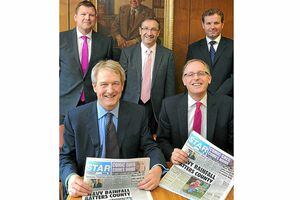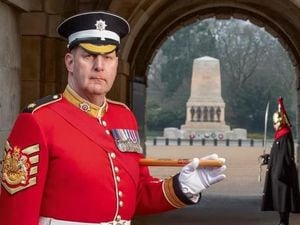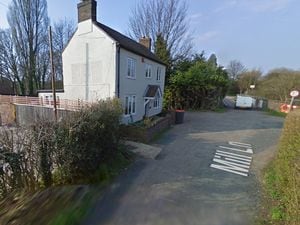Owen Paterson backs call on freedom of press
Environment Minister Owen Paterson has spoken out against the need for state regulation of the press, saying:?"There is absolutely no need for it and the government should leave well alone."

The North Shropshire MP was speaking during talks with Shropshire Star editor Keith Harrison to discuss the possible outcome of the Leveson Inquiry.
Lord Leveson is due to report his findings and recommendations next Thursday after a wide-ranging inquiry into press standards.
Mr Paterson, along with Telford MP David Wright, South Shropshire MP Philip Dunne and Glyn Davies, MP for Montgomeryshire, met at the Shropshire Star's Ketley head office to discuss possible outcomes from the report.
It was commissioned by Prime Minister David Cameron in the wake of the News of the World phone hacking scandal.
Lord Leveson and his panel of advisors heard evidence from witnesses including actors, politicians journalists and lawyers over 88 days, from November 14, 2011 to June 30 this year.
Lord Leveson's report is expected to include recommendations for the future regulation of the press – including both national and local newspapers.
This could include new statutory controls, an idea rejected by both Mr Paterson and Mr Davies, who said the press should be free of the state.
Mr Paterson, the Environment Secretary, said:?"I'm reminded of the words of Thomas Jefferson, the third president of the United States, who said in 1787 'Were it left to me to decide whether we should have a government without newspapers or newspapers without a government, I should not hesitate a moment to prefer the latter.'
"I go along with that wholeheartedly."
And he added:?"What happened with the News of the World affair was a matter of law, not industry regulation."
He said he could not think of "anything that would discredit politicians more" than to bring in state regulation.
Mr Davies, MP for Montgomeryshire, agreed. He said: "My view is very clear that we do not want any form of statutory regulation."
Mr Davies said if politicians began regulating newspapers "it takes us on the road to a communist country". He said he did not think "politicians should have their hands" in any control of the press.
Philip Dunne, MP for Ludlow and Minister for Defence Equipment, Support and Technology at the Ministry of Defence, said he was awaiting the report 'with interest'.
"Some of the actions of the nationals have been indefensible, which is one of the reasons the whole process was set up in the first place," he added. He said he would give his opinion once he had read the report.
Mr Wright said it was important to wait and see what Leveson proposed but added: "We need a system that tackles the worst excesses of some of the 'red tops' while protecting good, responsible, local newspapers.
"This might involve some statutory regulation, but if so it should not be overbearing."
It is widely believed that Lord Leveson will call for a new press regulator backed by the law – although what that entails remains to be seen.
The inquiry was set up after revelations that the News of the World commissioned a private detective to hack murdered schoolgirl Milly Dowler's phone after her disappearance 10 years ago. Other witnesses included the actor Hugh Grant, who complained about national press intrusion.
During yesterday's talks Shropshire Star editor Mr Harrison said it was important to distinguish between the worst behaviour of the national press and responsible local journalism that kept people informed with news from their councils and courts.
He said: "It was good to have the opportunity to discuss this matter with our local MPs and we are grateful for their time.
"Fundamentally, we are opposed to any form of state regulation and believe that our journalists should be able to report without fear, favour or influence from politicians.
"We understand – and share – the public's anger over the disgraceful behaviour of some sections of the national press.
"But it is important to recognise that these incidents involved only a tiny proportion of Britain's thousands of working journalists. Their wrong-doing was not a matter of regulation, it was a matter of criminality and the courts are now using existing laws to tackle these incidents.
"It is unthinkable that the Shropshire Star or any of its sister weekly titles would ever adopt such practices.
"We have always strictly adhered to the Press Complaints Commission Editor's Code of Practice, and fully co-operated with the PCC on the rare occasions it has been in touch.
"The regional newspaper industry has also put forward proposals for a new system of independent self-regulation which would be among the toughest on the planet, if adopted.
"A free press is the cornerstone of a free society and any form of state regulation can only undermine that principle."





